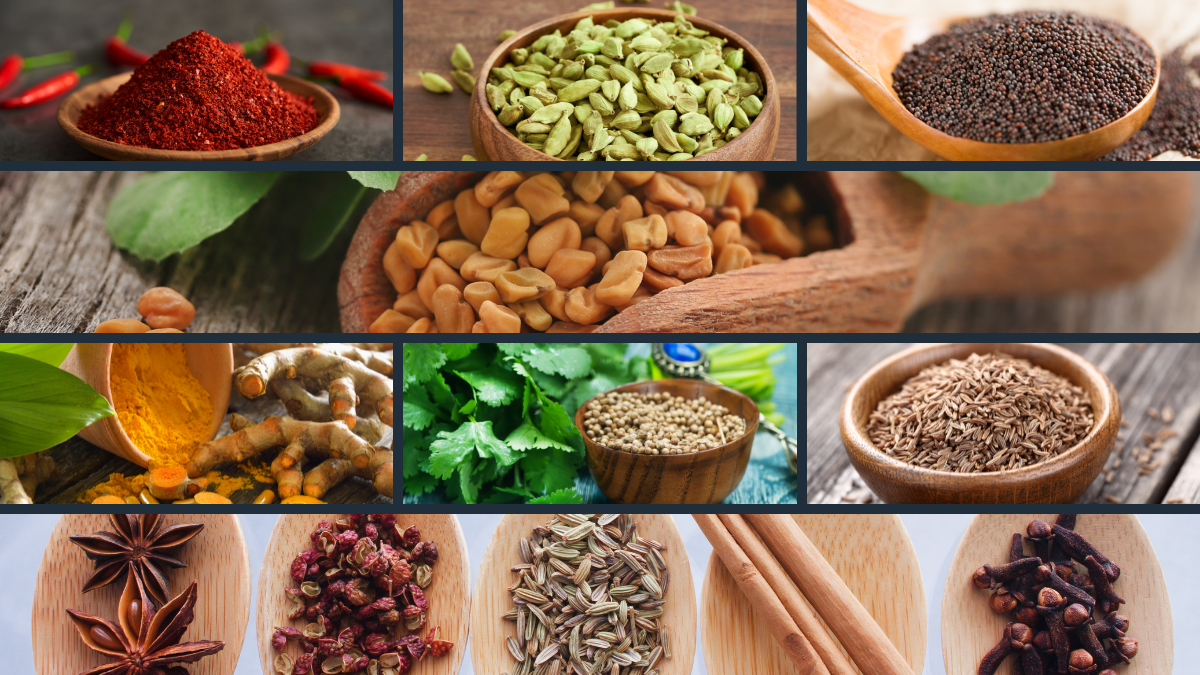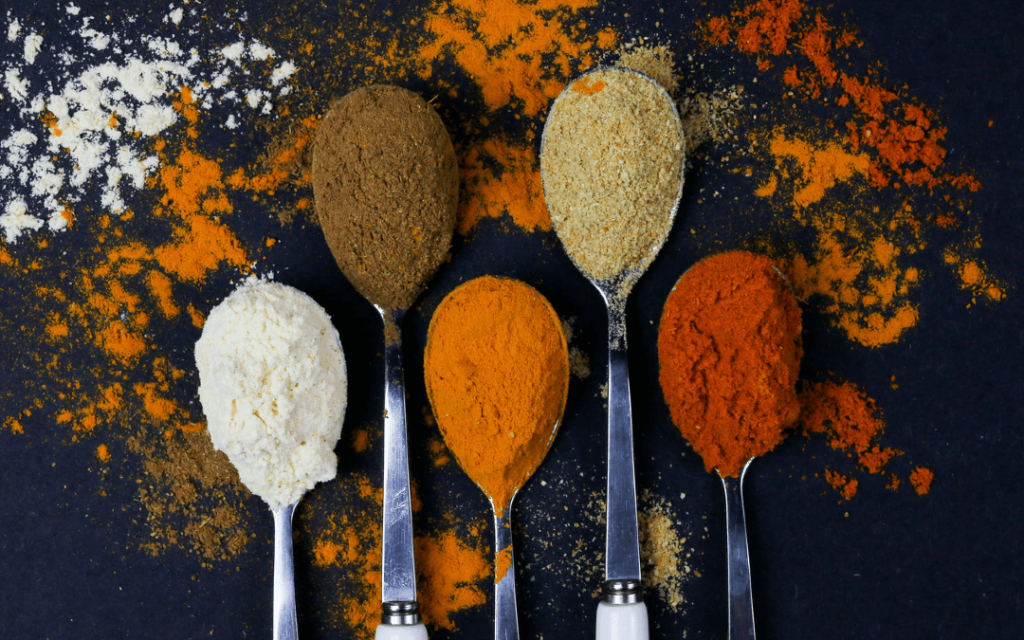Indian food is well known for its flavorful and aromatic combinations of ingredients. Indian spices are the foundation of this cooking culture. In addition to giving Indian cuisine its distinct flavor and texture, these spices have several health advantages. Join us as we explore the distinct qualities and crucial functions of Indian spices in cooking as we go on a culinary adventure.
The Rich Legacy of Indian Spices
Historical Significance
For centuries, the international spice trade has been based mostly on Indian spices. India has been a major hub for the trading of spices due to the facilitation of the exchange of spices by ancient trade routes like the Silk Road. The wide usage of spices in Indian cuisine, each with a unique cultural significance and backstory, is a reflection of its historical relevance.
Culinary Diversity
Every region of India has its own distinct spice blend, which contributes to the cuisine’s immense diversity. Spices are essential to bringing out the unique regional flavors of everything from the spicy curries of South India to the fragrant biryanis of the North. The variety of spice combinations, known as masala, highlights the culinary inventiveness and customs of many Indian cultures.
Essential Indian Spices
1. Turmeric: The Golden Spice
The most well-known Indian spice is probably turmeric (Curcuma longa). Turmeric, which has an earthy flavor and a bright yellow hue, is a common ingredient in Indian cuisine. It can be found in many different recipes, including as rice dishes and curries.
Health Benefits
Thanks in large part to the component curcumin, turmeric is well known for its anti-inflammatory and antioxidant qualities. It promotes joint health, strengthens immunity, and facilitates digestion.
2. Cumin: The Earthy Aromatic
Indian cuisine heavily utilizes cumin (Cuminum cyminum) seeds due to their earthy, warm taste. They are an essential component in spice blends like curry powder and garam masala, and they are frequently toasted to intensify their aroma.
Health Benefits
Because to its high iron content, anti-inflammatory properties, and aiding with digestion, cumin is good for general health.
3. Coriander: The Citrus Symphony
The mildly sweet, lemony flavor of coriander (Coriandrum sativum) seeds is rather pleasant. They are utilized whole or ground in many Indian recipes, such as spice blends, chutneys, and curries.
Health Benefits
Coriander seeds are high in antioxidants and vital nutrients, and they facilitate better digestion and blood sugar regulation.
4. Cardamom: The Queen of Spices
Equatoria cardamomum, or cardamom, is utilized in savory and sweet recipes because of its sweet, flowery flavor. It is an essential component of Indian biryanis, chai tea, and desserts.
Health Benefits
In addition to its antibacterial qualities and ability to help with digestion, cardamom also helps to freshen breath.
5. Cloves: The Pungent Power
Indian cooking rarely uses cloves (Syzygium aromaticum), due to their potent and powerful flavor. They are frequently added to rice meals, meat preparations, and spice blends.
Health Benefits
Cloves has antibacterial and anti-inflammatory qualities. They are also known to enhance digestion and relieve toothaches.
6. Mustard Seeds: The Fiery Flavor
Despite their small size, mustard seeds have a strong flavor. They are vital to many regional Indian recipes and are used in tempering, which involves heating them in oil to release their taste.
Health Benefits
Rich in magnesium, omega-3 fatty acids, and selenium are mustard seeds. They enhance lung health, lower inflammation, and support metabolism.
7. Fenugreek: The Bitter Sweet
A distinct blend of bitterness and sweetness characterizes fenugreek (Trigonella foenum-graecum) seeds. They are used to pickles, curry powders, and a variety of other meals to improve their flavor.
Health Benefits
In addition to its anti-inflammatory qualities, fenugreek helps control blood sugar levels.
8. Black Pepper: The King of Spices
One of the most popular spices in Indian cooking is black pepper (Piper nigrum). Its pungent, spicily flavor enhances many foods, including soups and curries.
Health Benefits
Black pepper has antioxidant qualities, improves nutrition absorption, and facilitates digestion.
The Art of Blending Spices

Garam Masala
An Indian spice combination called garam masala is traditionally made of ground coriander, cumin, cardamom, cloves, black pepper, and cinnamon. Every home and area has a unique take on garam masala, which reflects regional and personal preferences.
Curry Powder
A variety of spices, including turmeric, cumin, coriander, and fenugreek, are combined to make curry powder. It serves as the foundation for a variety of Indian sauces and curries.
Conclusion
Adding a symphony of flavors and smells to every meal, Indian spices are the fundamental component of Indian cuisine. They’re an essential in the kitchen due to their culinary flexibility, historical significance, and health advantages. You can make tasty, healthful, and authentic Indian foods by learning about and using these spices.
Also Read:- Turmeric Milk Benefits: The Golden Elixir for Health and Wellness


